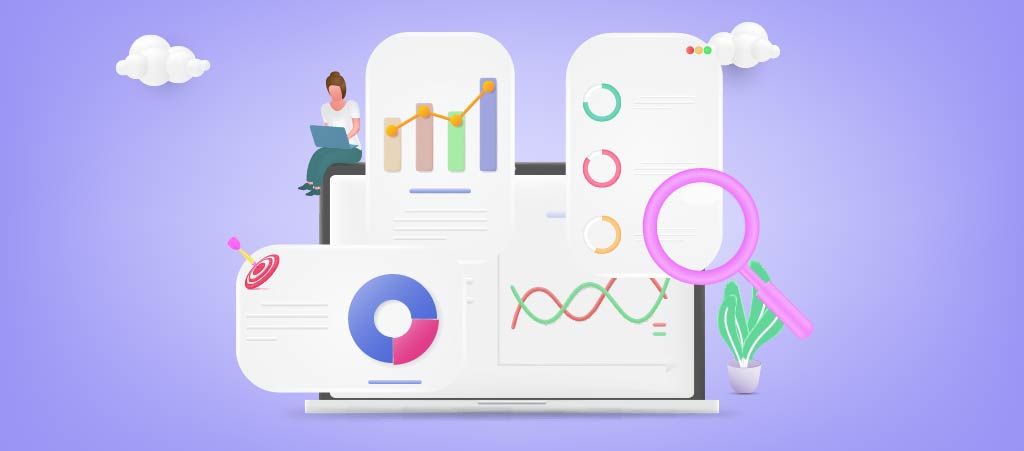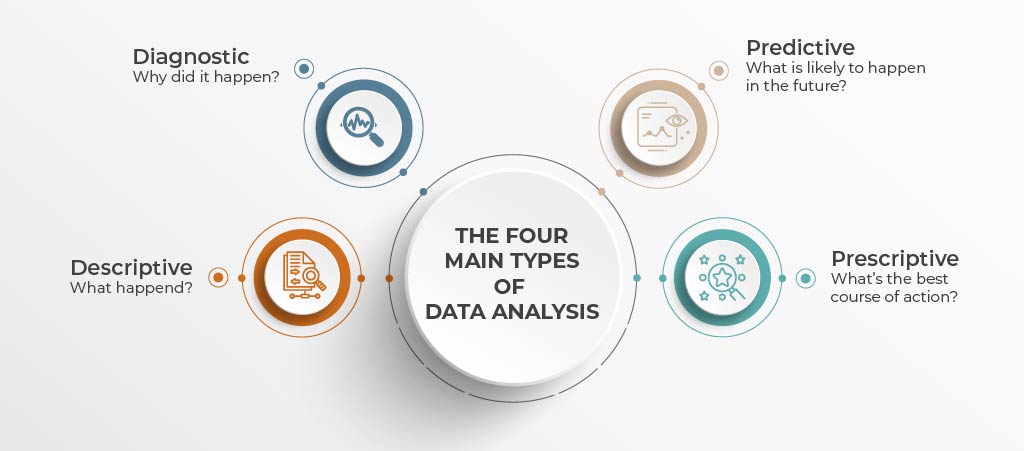Businesses today are overwhelmed with massive amounts of data from many sources, such as consumer interactions, market trends, and operational indicators. Given that it holds the key to revealing priceless insights that motivate informed decision-making, making sense of this data has become a critical strategic need.
Data analytics, the process of evaluating and interpreting data to uncover patterns and trends, is critical to translating raw data into usable insight. Continue reading this blog to explore how data analytics can empower informed business decisions and methodologies that organizations can leverage to harness the power of data.

What is Data Analytics?
The Benefits of Data Analytics:
Data analytics offers numerous benefits that drive business success and competitiveness. Few of these benefits include:
- Improved Decision-Making: Data analytics replaces hunches and intuition with evidence-based insights, resulting in more informed and exact decision-making.
- Enhanced Efficiency: By streamlining workflows and resource allocation through the optimisation of operations and processes, data analytics increases efficiency and lowers costs.
- Competitive Advantage: Businesses that use data analytics can spot market trends, consumer preferences, and new business prospects, giving them a big advantage over rivals.
- Customer-Centricity: By comprehending consumer behaviour and preferences, firms may efficiently customise their goods, services, and marketing plans to satisfy consumer wants.
- Real-Time Insights: Having access to real-time data and analytics enables organisations to take quick action in the face of shifting market conditions.
- Risk Management: Data analytics aids in risk assessment and mitigation, helping organizations proactively address potential challenges and uncertainties.
- Innovation: Data analytics fosters a culture of innovation by providing insights into emerging trends and customer demands, inspiring data-backed innovations.
Role of Data Analytics in Empowering Informed Business Decisions
For firms, data analytics is a key enabler of informed choices. The following are a few ways it enables businesses to make smarter decisions:
- Strategic Planning: Data analytics are essential to this process. Businesses can detect trends and patterns by analysing past and current data, allowing them to create efficient long-term strategies that are in line with consumer desires.
- Market Insights: Data analytics provide insightful information on the dynamics of the market, consumer behaviour, and business trends. This data can be used by businesses to find undiscovered market opportunities and solve client problems.
- Customer understanding: Businesses can better understand their customers by analysing customer data such as purchase history, feedback, and browsing habits. This makes it easier to customise goods and services to fit customer needs, which raises client satisfaction and loyalty.
- Product Development: Data analytics can inform product development efforts by identifying customer preferences, feature demands, and potential improvements. This ensures that products align with market demands and user expectations.
- Marketing Effectiveness: Data analytics measures the impact and effectiveness of marketing campaigns. By analyzing campaign performance metrics, businesses can optimise their marketing spend and target the right audience for maximum impact.
- Supply Chain Optimization: Data analytics can optimize supply chain management by identifying bottlenecks, optimizing inventory levels, and predicting demand fluctuations. This leads to improved efficiency and reduced operational costs.
Key Methodologies in Data Analytics

Few important methods of Data analytics are:
1. Descriptive Analytics: Descriptive analytics involves summarizing historical data to provide insights into past events and trends. It helps businesses understand what has happened and what patterns have emerged.
2. Diagnostic Analytics: Diagnostic analytics aims to answer why certain events occurred by digging deeper into data. It helps businesses understand the root causes of specific outcomes.
3. Predictive Analytics: Predictive analytics uses historical data and statistical algorithms to make predictions about future events or trends. It allows businesses to anticipate potential outcomes and take proactive measures.
4. Prescriptive Analytics: Prescriptive analytics recommends actions or solutions based on predictions and desired outcomes. It helps businesses optimize decision-making by providing actionable insights.
Concluding Thoughts
Data analytics has become a crucial tool for firms seeking to thrive in today’s data-driven environment. Enterprises can obtain a competitive advantage and boost corporate growth by taking advantage of data and analytics. Operational effectiveness, consumer understanding, and strategic planning are just a few of the many benefits of data analytics. Leveraging data analytics will be essential to uncovering insightful knowledge and turning it into useful intelligence for making data-driven, informed business decisions as organizations continue to produce enormous amounts of data. In the dynamic and data-rich corporate environment, adopting data analytics as a strategic asset enables organisations to navigate uncertainty, spot new possibilities, and achieve long-term success.



